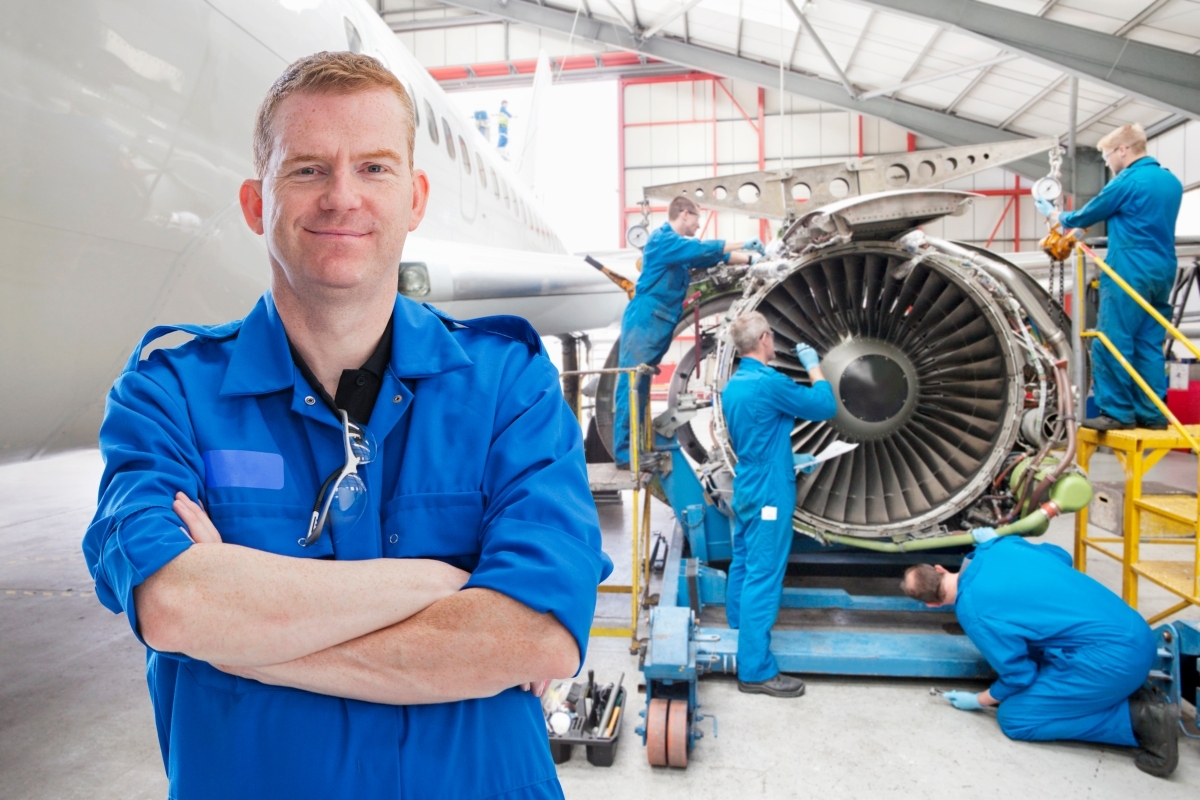- Home
- Course
- Personal Development
- Engineering
- Aerospace Engineering
Aerospace Engineering
Overview: Welcome to Aerospace Engineering: Exploring the Frontiers of Flight, a comprehensive online course designed to introduce you to the …
( 1 Reviews )
 18 Students
18 Students
Overview:
Welcome to Aerospace Engineering: Exploring the Frontiers of Flight, a comprehensive online course designed to introduce you to the captivating world of aerospace engineering. In this course, we will delve into the intricate principles, technologies, and applications that drive the design, development, and operation of aircraft and spacecraft.
From the pioneering days of the Wright brothers to the cutting-edge innovations of modern space exploration, aerospace engineering has been at the forefront of human achievement, pushing the boundaries of what is possible in the skies above and beyond. Throughout this course, you will embark on a journey through the fundamental concepts and advanced methodologies that underpin the aerospace industry.
Our exploration will encompass a wide array of topics, including aerodynamics, propulsion systems, materials science, avionics, orbital mechanics, and space mission design. Through engaging lectures, interactive simulations, and hands-on projects, you will gain a deep understanding of the principles governing flight dynamics, aerospace structures, and the challenges of operating in the vacuum of space.
Furthermore, you will have the opportunity to explore the interdisciplinary nature of aerospace engineering, discovering how it intersects with fields such as mechanical engineering, electrical engineering, computer science, and mathematics. By the end of this course, you will not only have a solid foundation in aerospace engineering principles but also a newfound appreciation for the complexities and wonders of flight and space exploration.
Whether you are an aspiring aerospace engineer, a curious enthusiast, or someone simply fascinated by the wonders of flight, this course offers a captivating journey into the world of Aerospace Engineering. Join us as we embark on an exploration of the frontiers of flight and unlock the mysteries of the skies and beyond.
Learning Outcomes:
- Enhance understanding of legal and policy frameworks in child protection.
- Develop advanced risk assessment skills.
- Strengthen knowledge of multidisciplinary collaboration.
- Implement effective intervention strategies.
- Identify indicators of various forms of child abuse.
- Enhance skills in communicating with children and families.
- Understand the importance of self-reflection and continuous improvement in safeguarding practice.
What Will Make You Stand Out?
On Completion of this Aerospace Engineering online course, you’ll acquire:
- CPD QS Accredited Course.
- Upon Course Completion, Earn a Complimentary PDF and a hard copy Certificate to Showcase Your Enhanced Skills.
- Lifetime access.
- 24x7 Tutor Support.
- Complete the course at your own pace.
Description:
This course provides comprehensive insights into advanced safeguarding techniques for professionals working with children. It covers topics such as legislation, risk assessment, intervention strategies, and effective collaboration. Participants will engage with real-world case studies to deepen their understanding and develop practical skills for safeguarding children in diverse contexts.
Who is this course for?
This course is designed for professionals working with children, including educators, social workers, healthcare professionals, law enforcement officers, and volunteers. It is suitable for individuals seeking to enhance their skills and knowledge in safeguarding children.
Requirements:
Participants should have completed a Level 1 Safeguarding course or possess equivalent knowledge. Basic computer literacy and access to the internet are necessary for accessing course materials and participating in online discussions.
Certification:
Upon successful completion of the Aerospace Engineering course, learners can obtain both a PDF certificate and a Hard copy certificate for completely FREE. The Hard copy certificate is available for a nominal fee of £3.99, which covers the delivery charge within the United Kingdom. Additional delivery charges may apply for orders outside the United Kingdom.
Career Path:
- Child Protection Officer
- Social Worker specializing in Child Welfare
- School Counselor
- Child Advocacy Coordinator
- Family Support Worker
Course Curriculum
| Introduction | |||
| Presentation of the Course | 00:03:00 | ||
| Course Structure | 00:04:00 | ||
| Introduction to Airplanes and their Main Elements | 00:06:00 | ||
| Classification of Airplanes | |||
| General Aviation | 00:04:00 | ||
| Commercial Aviation | 00:04:00 | ||
| Military Aircraft | 00:06:00 | ||
| Aerodynamics | |||
| Airplane Forces and Trajectory | 00:07:00 | ||
| Lift and Drag: Newton’s 3rd Law and Bernoulli | 00:16:00 | ||
| 3D Wings Lift and Drag | 00:18:00 | ||
| High Lift Devices | 00:15:00 | ||
| Turbulence and Stall | 00:13:00 | ||
| Airplane Propulsion Engines (JETs) | |||
| Engines Overview | 00:06:00 | ||
| Inlets | 00:07:00 | ||
| Compressors | 00:10:00 | ||
| Turbines and Nozzles | 00:05:00 | ||
| TurboJet vs. Turbofan Review | 00:21:00 | ||
| Flight Mechanics | |||
| Gravity Center and Pressure Center: Stability | 00:13:00 | ||
| Control Surfaces of an Aircraft and Maneuvers | 00:10:00 | ||
| Aircraft Performance | |||
| Definition of Weights | 00:08:00 | ||
| Range of an Aircraft as function of Weight | 00:14:00 | ||
| Optimization of Range – Breguet Equations | 00:17:00 | ||
Frequently Asked Questions
In the UK, the social care system is mainly managed by the local councils. People are directly employed by the councils. They often work together with the health commissioners under joint funding arrangements. Some people work for private companies or voluntary organizations hired by local councils. They help the local councils with their personal social services.
In the UK, the social care system is mainly managed by the local councils. People are directly employed by the councils. They often work together with the health commissioners under joint funding arrangements. Some people work for private companies or voluntary organizations hired by local councils. They help the local councils with their personal social services.
In the UK, the social care system is mainly managed by the local councils. People are directly employed by the councils. They often work together with the health commissioners under joint funding arrangements. Some people work for private companies or voluntary organizations hired by local councils. They help the local councils with their personal social services.
In the UK, the social care system is mainly managed by the local councils. People are directly employed by the councils. They often work together with the health commissioners under joint funding arrangements. Some people work for private companies or voluntary organizations hired by local councils. They help the local councils with their personal social services.
In the UK, the social care system is mainly managed by the local councils. People are directly employed by the councils. They often work together with the health commissioners under joint funding arrangements. Some people work for private companies or voluntary organizations hired by local councils. They help the local councils with their personal social services.
14-Day Money-Back Guarantee
-
Number of Units:
21 -
Access:
1 Year -
Duration:
3 hours, 27 minutes -
PDF Certificate
Included
https://discovertraining.net/wp-content/uploads/2022/05/discover-training-logo.webp
COPYRIGHT © 2021 One Education
Oops! We could not locate your form.


